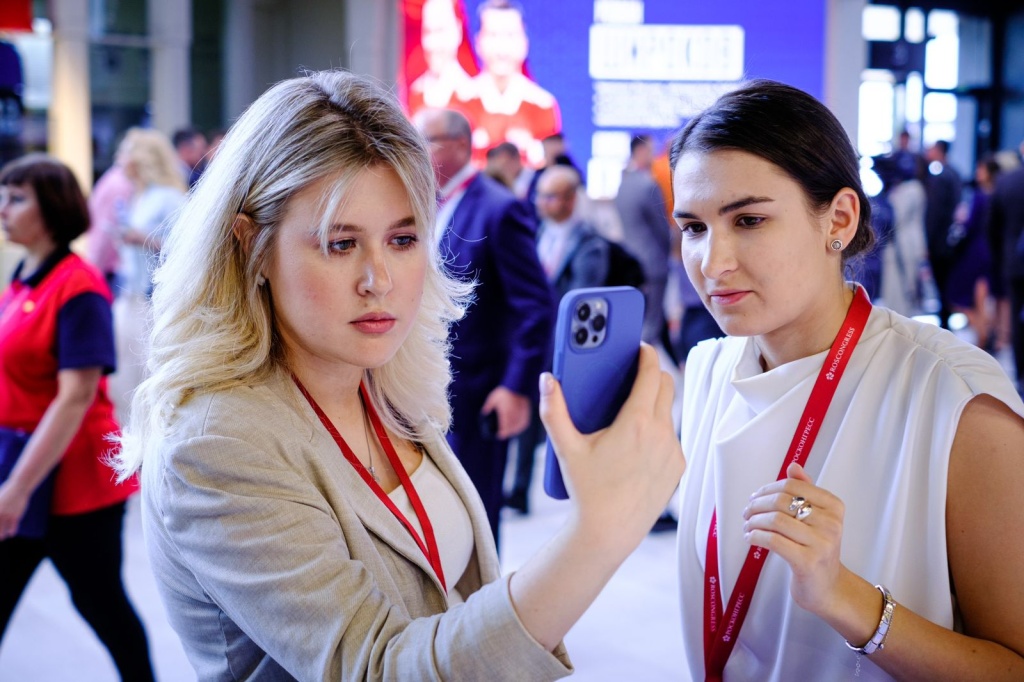
The Russian Small and Medium-sized Business Forum: “: Industry-Specific Aspects of Development for SMEs. Key Trends: Production and Export Potential ”
On Zero Day of SPIEF 2016, at the Russian Small and Medium-Sized Enterprises Forum, a panel session was held devoted to the export potential of SME – industry and production.
The session participants discussed forming demand for SME products, support for innovation, and also support for and development of exports by Russian companies.
The event moderator was Nikolay Dunaev, Member of the Presidium of OPORA Russia and General Director of Energoservis.
The session began with speeches by businessmen: Maxim Tretyakov, General Director, Elkat and Dmitry Pishchalnikov, Chairman of the Board of Directors, Krasnokamsky Metal Grill Works. The speakers pinpointed the main problems for industrialists: the cost of transport, the difficulty in seeking infrastructure abroad, the tax and customs services operating efficiency.
Continuing the subject, Viktor Yermakov, Special Representative of the Presidential Commission for Entrepreneurs’ Rights, focused attention on the fact that, within the system of relations between exporters and controlling bodies, “the weak spots should be identified: the tax service might work for improvement without business sensing this”.
Andrey Polyakov, Regional Development Director of the Russian Export Centre (REC), reminded those present that financial support is provided to exporters by EKSAR, the Russian Agency for insurance of export credits and investments, and Roseximbank, which is part of GK REC. The key export difficulties are problems of logistics and certification, administrative barriers, especially during fulfilment of an export contract, and marketing shortcomings. These are measures in the non-financial sphere and the REC is working on them, seeking both foreign counterparties and export niches. The REC is also preparing an educational project for businessmen, allowing them to assess the markets, get to the bottom of certification issues, and promote participation by the target regional business audience in exhibitions. In addition, the REC is developing the Russian export brand Made in Russia.
Mr. Bantsekin called creation of an SME register one method for resolving the lack of information: “Russian businessmen do not know what the conditions for doing business are abroad and foreign partners do not know what to expect from Russian businesses”. The register will not only make it possible to draw up a list of enterprises but also identify the type of production for which enterprise is responsible. Mr Bantsekin reminded those present that the so-called Programme 6.5% (Programme for encouraging crediting of SME) is working to resolve the problem of the shortage of financing,
Vasily Osmakov, Director of Strategic Development Department of the Ministry of Industry and Trade of the Russian Federation, spoke about the Russian Industry Development Strategy up to 2035, the main aim of which is to change Russia’s global positioning. The Ministry intends to identify a few leading industries for priority development. According to Osmakov, these might be agriculture, the fuel and energy complex and transportation. The list might also include machine-building and pharmaceuticals. The plans of the Ministry of Industry and Trade include cluster development of industry, transfer to project financing in the 2017 budget year and automation of administrative processes.
Kirill Emelyanov Deputy Director of the Department for Development of Small and Medium Enterprises and Competition of the Ministry of Economic Development of the Russian Federation, stated that SME enterprises exported less than a third of their output and accounted for 6% of all exports. Popularisation of Russian goods will be facilitated by the marketing tool of increasing trust, specifically the brand Made in Russia. He talked about preparation of an SME infrastructure on entering foreign markets: the system will deal with certification, adaptation of goods and translation of documents, leaving the businessman to put together, prepare and dispatch output for export. The supplier will be major private Internet companies from the Russian Federation. The Ministry of Economic Development has already received several applications from Internet services and, in the near future, the project will be presented to President Putin.
In the opinion of Vice-President of Delovaya Rossiya Nonna Kagramanyan, we should not confine ourselves to entering overseas non-commodity markets at just specific points, since this will not lead to national economic growth and modernisation. “We need to win niches, to go abroad with products with high added value. Without co-operation links within the chains of import substitution and localisation, this is not possible. We need to launch fundamentally new domestic products on to foreign markets in order to create new sectors of the global market”. As an example, she gave the countries of South-East Asia, where state support for export has been used as an instrument for gradually modernising industry and a mechanism for growing national sectors with a higher degree of technological progress.








